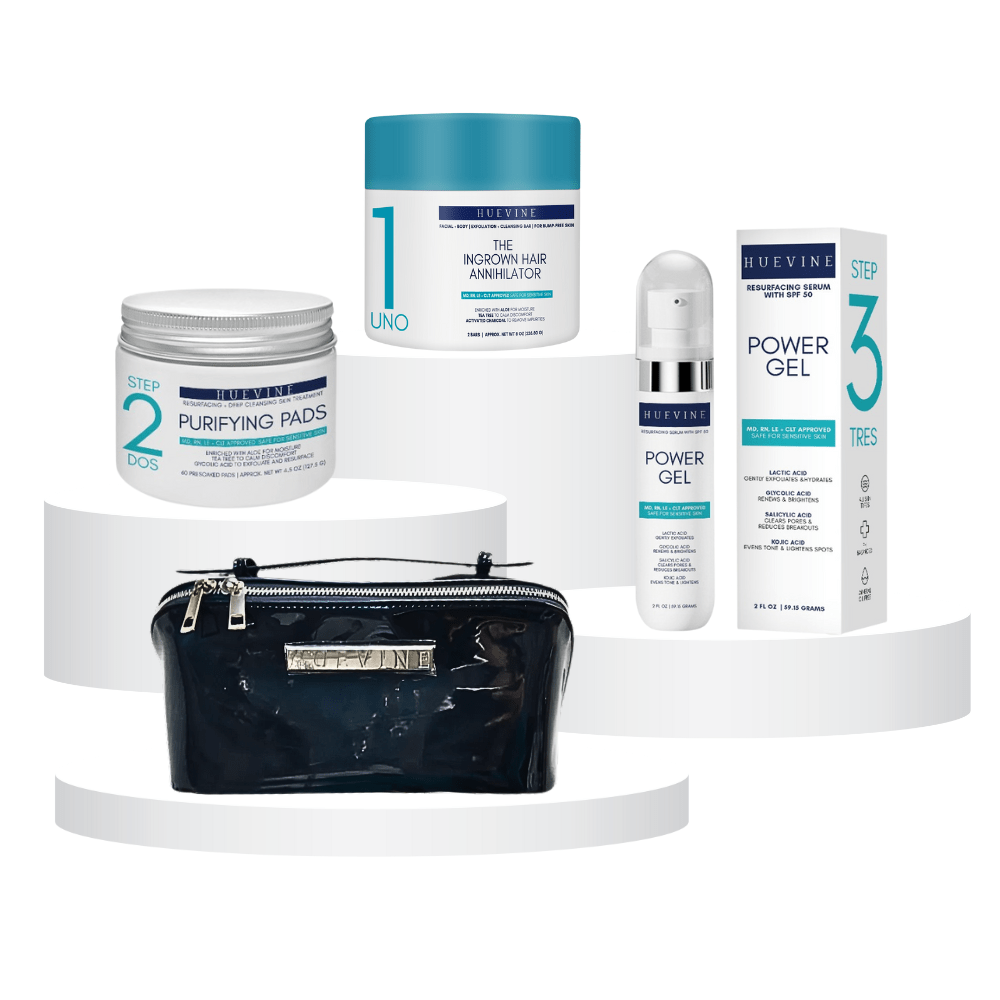It's the perfect time of year for apple picking and pumpkin spice lattes, but it also means you need to take extra care in keeping your skin protected from seasonal changes. The fall season can be hard on your skin, with dryness and an increased risk for breakouts. Keep reading to learn more about how you can protect your skin this fall!
As the weather becomes cooler, your skin takes in more damage and can become dryer. It's important this time of year to follow a strict skincare routine that includes moisturizer and protecting yourself from sun exposure.
Indoor heating is often increased during the winter months, which lowers humidity and restricts how much moisture may reach the skin.
Damage to the skin barrier during the winter might cause dryness, which can lead to the following problems:
- flaking
- rough patches
- cracks
- redness, in lighter skin tones
- itching
- stinging
- a raw, sensitive-to-the-touch feeling
Dry and damaged skin needs moisture replenishment.
You can help your skin by drinking plenty of water and using a humidifier indoors. You may also choose to use moisturizers or lotions that contain ingredients such as:
- vitamin E oil, which is an anti-inflammatory ingredient for the skin
- hyaluronic acid, which prevents loss of moisture in the outer layers of the skin
- dimethicone, which can be cleansing and moisturizing at the same time
In order to avoid dry skin this fall season, follow a skincare routine that includes protecting your skin from sun exposure. The SPF 15 in your moisturizer is not enough.
Adjusting skincare regimens:
Moisturize several times a day. Cold weather means your skin is even more exposed to the elements, so it's important to moisturize as often as possible in order to keep yourself from getting dry and flaky patches of skin. Don't forget about lip balm! Cold wind can cause chapping on your lips which can lead to
Drink plenty of water. Colder weather means you are probably not drinking as much water, so be sure to increase your intake in order to keep yourself hydrated.
Use moisturizers or lotions that contain anti-inflammatory ingredients such as vitamin E oil hyaluronic acid, which prevents loss of moisture in the outer layers of the skin dimethicone, which can be cleansing and moisturizing at the same time. Cold weather often brings dryness to the skin, so it's important to use moisturizers that are designed for cold weather. Colder months mean your makeup may not be as effective due to dryer skin—a humidifier is a great investment in order
Use a humidifier indoors. Cold air is often dry and can take moisture out of the skin quickly. A good humidity level for indoor heating ranges from 30-50 percent, which will help add moisture to the air and keep your skin hydrated.
Limiting exposure to heat. Taking a lukewarm bath or shower rather than a hot one, and avoiding sitting near a fire or heater, are both good methods to prevent this condition. Heat can suck away precious moisture from the skin.
Dry Skin is not an inevitable consequence of colder weather. By taking preventative measures you can keep your skin hydrated without damaging it.


